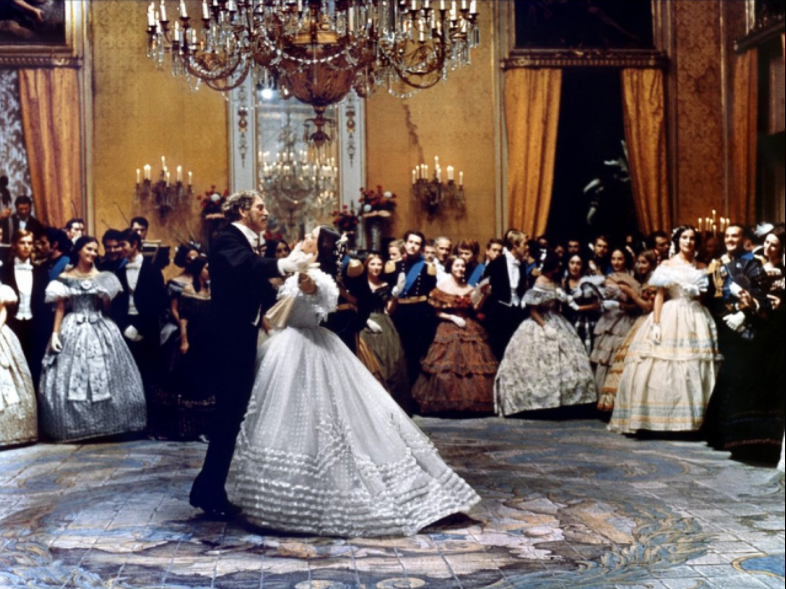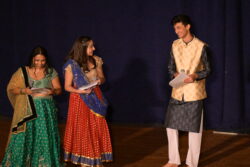This Italian classic of historical fiction tells of the slow decay of an aristocratic Sicilian family of the 19th century. The patriarch, Don Fabrizio, is the protagonist and tragic hero of this novel, and his sarcastic lamentations of modernity pair with incredibly emotive descriptions of the torrid and dusty Sicilian landscape to create a masterpiece of prose. Against the backdrop of Italian unification and Garibaldi’s escapades, the story of this family unfolds, rich with the influence of religious themes and interspersed with Don Fabrizio’s monologues about the idiosyncrasies of his family members. A pervasive nostalgia colors the entire work, but still leaves room for spellbinding beauty in his nephew, Tancredi’s, courtship of Angelica, daughter of the new generation of wealth and aristocracy. Tancredi, in this novel, plays a crucial role as the model of the adaptable man, wise beyond his years in the knowledge that one must accept the helplessness of man in the face of change and move with its current in order to retain dignity.
An overwhelming melancholy underlies Don Fabrizio’s captivating descriptions of decadence, speaking to the common yet a noteworthy lament of changing times, made legitimate and all the more evocative by the fact that it is delivered by a prince of a long-gone aristocracy. His favorite nephew perfectly demonstrates the ingenuity of our species in the face of inevitable change, an ambitious adaptability that simultaneously contrasts and complements the Sicilian prince’s world-weary tactic of picking the dominant current and resigning himself to it. The political rebellions of contemporary times, the ever-spreading forces of democracy and revolution, reflect the overly anticipated political changes in Italy. A shifting about of classes, a slight change in the distribution and sources of power, and then everyone settles back into their positions. Yet, everything has changed and society finds itself moving in a different direction down a different path.
In these situations, people, more specifically those in positions of power and prestige, are faced with a difficult choice between remaining rigid in their ways or readjusting to the change. These individuals need to bend to the change in order to retain their dignity and some vestige of former glory. The rise of one generation and fall of another as depicted in The Leopard usually features the mobilization and revolt of those dissatisfied with their lack of power and wealth. These are the ones who represent the change and become the foundation of the new system. Those who are not so grounded historically, the peasants of Sicily who do not much care for their heritage fill in the spaces between the pillars of this new system. Finally, those who are stubborn enough to resist it are inevitably eliminated. They become anachronistic caricatures, individuals who laughably believe themselves to still be an influential and prestigious force long after their time of dominance has passed. Those with power who accept the change, however, are those who can maneuver themselves into the system. Adapting the currents of change is what allows for progress, although it may mean a decrease in public esteem despite a retention of wealth, whereas the tree that does not bend, breaks. Through Tancredi’s influence, Don Fabrizio allows his family to adapt, places himself on the right side of history, and sadly accepts that he will be the last aristocrat of his kind.
Circumstances like this beg the exploration of what ideals can be retained in the face of political change. The Sicilian prince does not resist; in fact he allies himself with the change, allowing the daughter of a self-made man of debatable heritage and his socially unpresentable wife marry into his family. However, he does not relinquish his own dignity, thus maintaining his position of status within society, while allowing his family to move into the new world. His ideals of nobility, on the other hand, are necessarily surrendered with the acceptance that the new order revolves around wealth and not patrimony or ancestry. Tancredi’s willing sacrifice of idealism for opportunism reflects the often imperative response that is frequently the only possible choice in the face of change. The changing political landscape of the world today elicits a necessary exploration of this same issue. The question has forever been and still is whether certain ideals that guide and shape society should be preserved, or if comprehensive progress requires that we relinquish our hold on all ideals termed outdated. This is the problem that permeates all aspects of society today, and the answer we choose will be the ultimate determinant of our constantly evolving identities, dictating who refuses to move and is eradicated, and who adapts and survives.




